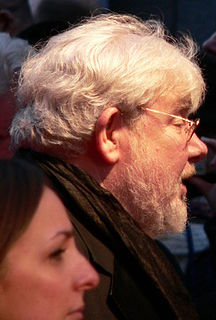A Quote by Alan Watts
Self-improvement is a dangerous form of vanity.
Quote Topics
Related Quotes
Introspection is self-improvement and therefore introspection is self-centeredness. Awareness is not self-improvement. On the contrary, it is the ending of the self, of the “I,” with all its peculiar idiosyncrasies, memories, demands, and pursuits. In introspection there is identification and condemnation. In awareness there is no condemnation or identification; therefore, there is no self-improvement. There is a vast difference between the two.
In early psychoanalytic thought, narcissism was - and still, of course, is - self-love. The early psychoanalysts used to talk of libido directed at the self. That now feels a little quaint, that kind of language. But it does include the most fierce and self-displaying form of one's individual self. And in this way, it can be dangerous. When you look at Donald Trump, you can really see someone who's destructive to any form of life enhancement in virtually every area. And if that's what Fromm means by malignant narcissism, then it definitely applies.
If the denial of death is self-hatred, as it is to deny our freedom and live in fear of death (which is to say, to live in a form of bondage), then the acceptance and affirmation of death is indeed a form of self-love. But I'd want to make a distinction between a form of self-love which is essential to what it means to be human, and a narcissism of self-regard, like Rousseau's distinction between amour de soi and amour propre, self-love and pride.









































